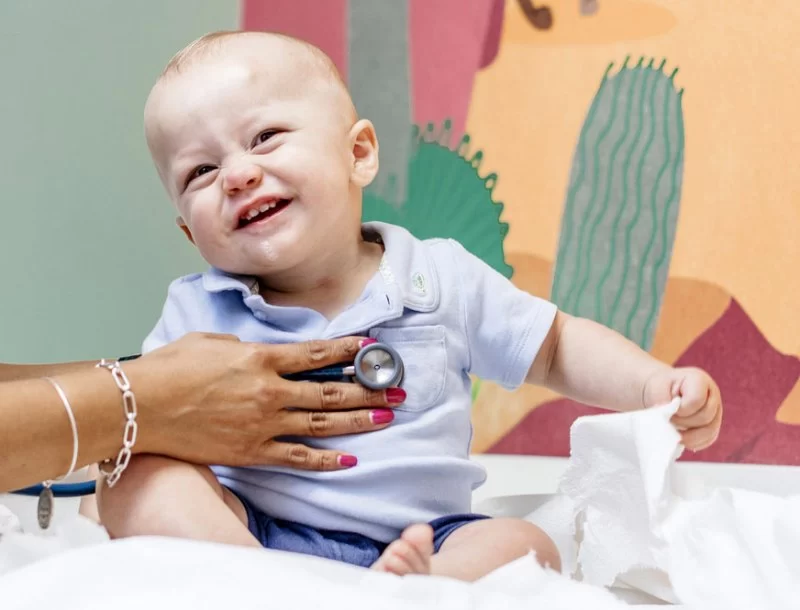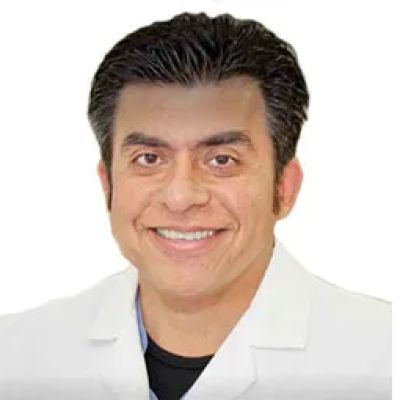Understanding Congenital Heart Defects in Children
Congenital heart defects (CHDs) are among the most common birth defects affecting children, with approximately 1 in 100 babies born with some form of heart condition. These defects can range from minor to life-threatening, affecting the structure and function of the heart. While the news of a child being born with a congenital heart defect can be overwhelming for parents, understanding the nature of these conditions, their symptoms, and treatment options can help caregivers make informed decisions. In this article, we explore what congenital heart defects are, how they affect children, and the importance of early detection and treatment.

1. What Are Congenital Heart Defects?
Congenital heart defects refer to a range of heart conditions present at birth. These defects occur when the heart or blood vessels do not form correctly during fetal development. Depending on the severity and type of defect, these conditions can affect the flow of blood through the heart or the ability of the heart to pump blood effectively. Some of the most common types of congenital heart defects include:
- Atrial Septal Defect (ASD): A hole in the wall that separates the two upper chambers of the heart (the atria).
- Ventricular Septal Defect (VSD): A hole in the wall separating the heart's lower chambers (the ventricles).
- Patent Ductus Arteriosus (PDA): A condition where a blood vessel that should close after birth remains open, causing abnormal blood flow.
- Coarctation of the Aorta: A narrowing of the aorta that restricts blood flow to the body.
- Hypoplastic Left Heart Syndrome (HLHS): A rare, complex condition where the left side of the heart is underdeveloped.
These conditions can vary in severity. Some defects may cause no symptoms and are only discovered later in life, while others may lead to heart failure or require surgical intervention immediately after birth. Early detection is crucial for ensuring that children receive appropriate treatment to manage these conditions.
Atlanta Heart Specialists
atlanta heart specialists
4375 Johns Creek Pkwy #350, Suwanee, GA 30024, USA

2. What Causes Congenital Heart Defects?
The exact causes of congenital heart defects are not always known, but several factors can contribute to their development. Genetics, environmental factors, and maternal health can all play a role. In some cases, congenital heart defects may be linked to a genetic condition such as Down syndrome, which increases the risk of heart defects in children. Additionally, maternal factors such as poor nutrition, smoking, diabetes, or certain medications during pregnancy can increase the likelihood of a child being born with a heart defect.
Environmental factors, such as exposure to toxins or infections during pregnancy, may also contribute to the development of CHDs. However, in many cases, no specific cause can be identified, and the defect is considered to have occurred randomly during the formation of the fetal heart.
3. Common Symptoms of Congenital Heart Defects
Symptoms of congenital heart defects vary greatly depending on the type and severity of the condition. Some children may have no symptoms or only mild symptoms, while others may experience significant health challenges. Common signs and symptoms of CHDs include:
- Difficulty breathing: This can be a sign that the heart is not pumping enough oxygen-rich blood to the lungs and body.
- Rapid breathing or shortness of breath: Children may appear to be working harder to breathe, especially during physical activity.
- Fatigue or poor feeding: Babies with severe heart defects may tire easily, making it difficult for them to feed properly.
- Bluish skin (cyanosis): A bluish tint to the skin, lips, or fingernails can indicate that the blood is not oxygenated properly.
- Swelling in the legs, abdomen, or eyes: This can be a sign of heart failure, where the heart is not able to pump blood effectively.
If a child exhibits any of these symptoms, it is essential to seek medical attention immediately for evaluation and diagnosis. In many cases, congenital heart defects can be managed or treated with early intervention.
4. Diagnosis of Congenital Heart Defects
Congenital heart defects are often diagnosed shortly after birth, during routine physical exams or screenings. However, in some cases, the diagnosis may not occur until later in childhood or even adulthood, particularly if the defect is mild and does not cause significant symptoms.
Several diagnostic tests are used to detect congenital heart defects, including:
- Physical Exam: Doctors may listen to the heart for murmurs or abnormal rhythms, which can indicate a heart defect.
- Echocardiogram: An ultrasound of the heart that provides detailed images of the heart's structure and function.
- Electrocardiogram (ECG): A test that measures the electrical activity of the heart and helps detect arrhythmias.
- X-ray or CT scan: Imaging techniques that provide additional information about the heart and blood vessels.
Early detection through these tests can help doctors plan the best course of treatment for the child. In some cases, a defect may not be identified until later in childhood, particularly if the symptoms are mild or not apparent until the child is active.
5. Treatment Options for Congenital Heart Defects
The treatment for congenital heart defects depends on the type, severity, and impact on the child’s overall health. Some children may not require immediate treatment, while others may need surgery or medication to manage the condition.
Common treatment options for congenital heart defects include:
- Medications: Some heart defects can be managed with medications that help improve heart function or manage symptoms like swelling and difficulty breathing.
- Surgery: Surgical repair is often needed for more severe heart defects. This may involve repairing holes in the heart, widening blood vessels, or other procedures to improve blood flow.
- Catheter-based interventions: For certain defects, doctors may use minimally invasive catheter procedures to repair the heart defect without the need for open-heart surgery.
- Ongoing monitoring and lifestyle changes: For mild defects or after surgical intervention, regular check-ups and lifestyle adjustments may be necessary to monitor the child’s heart health over time.
Many children with congenital heart defects can lead active and healthy lives, particularly with early intervention and ongoing care. Regular follow-up with a pediatric cardiologist is essential to ensure the child's heart health is properly managed.
6. The Role of Parents in Managing Congenital Heart Defects
As a parent of a child with a congenital heart defect, it’s essential to be proactive about your child’s health care. While it can be overwhelming at times, staying informed and working closely with your child’s healthcare team will help ensure the best possible outcomes. Here are a few tips for parents:
- Stay informed: Learn as much as you can about your child’s condition, treatment options, and any potential risks.
- Advocate for your child: Ensure that your child receives the best care possible by asking questions and being involved in decisions about their treatment.
- Provide emotional support: Help your child cope with any challenges related to their condition, and encourage a positive, active lifestyle as much as possible.
- Encourage physical activity: Depending on the severity of the condition, encouraging appropriate physical activity can help improve heart health and overall well-being.
Conclusion: Understanding and Managing Congenital Heart Defects
Congenital heart defects are serious conditions that affect many children, but with early diagnosis and treatment, most children can live full, active lives. As a parent or caregiver, understanding your child’s condition, staying informed, and working with healthcare professionals will help ensure the best possible outcome for your child’s health. If you have concerns about your child’s heart health, don’t hesitate to consult with a pediatric cardiologist to explore the available treatment options.
For more information on managing heart health and related products, visit HeartCare Hub for expert advice and recommendations on maintaining a healthy heart for your child.






















Deborah Heart and Lung Center
deborah heart and lung center
200 Trenton Rd, Browns Mills, NJ 08015, USA